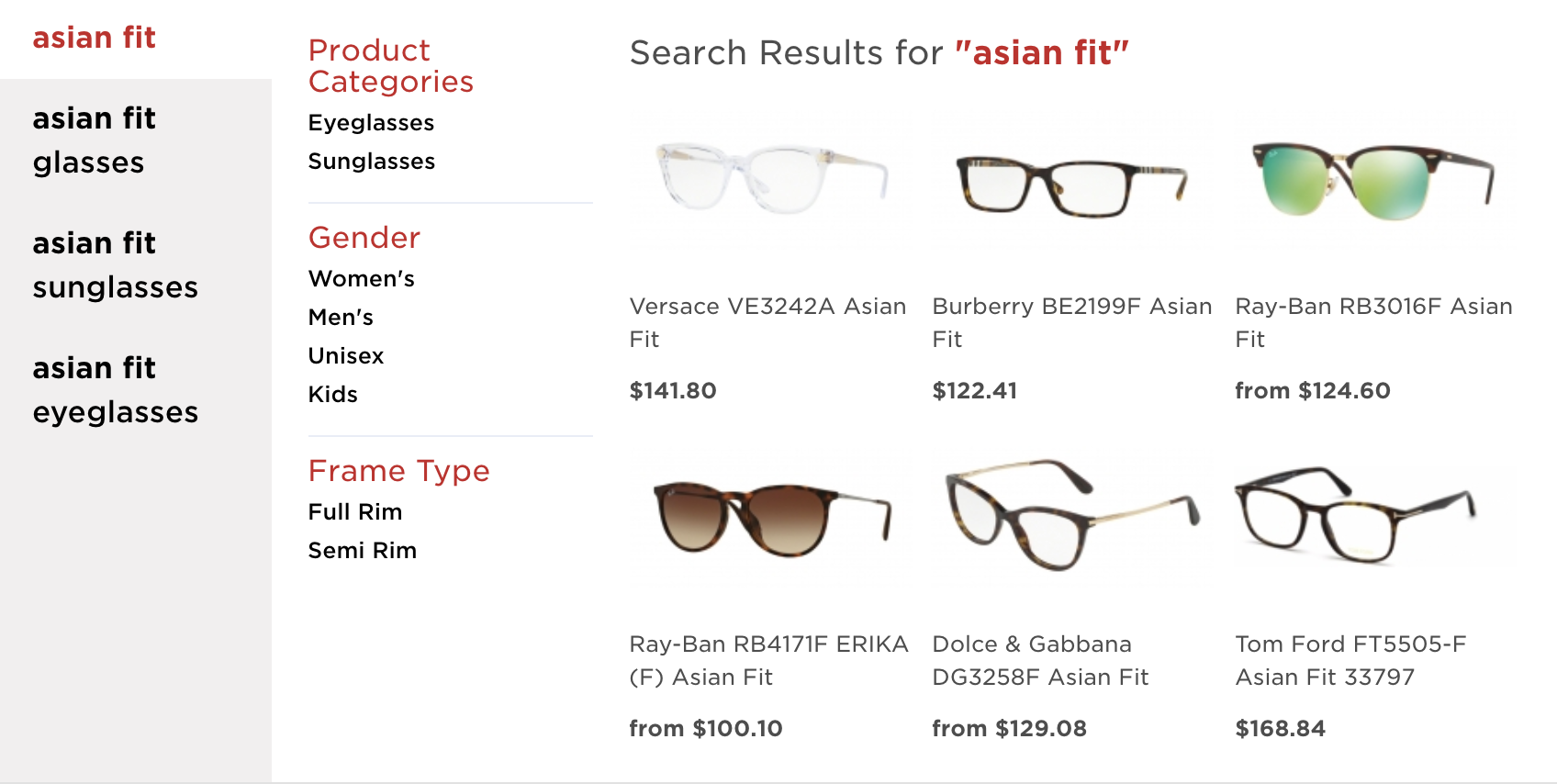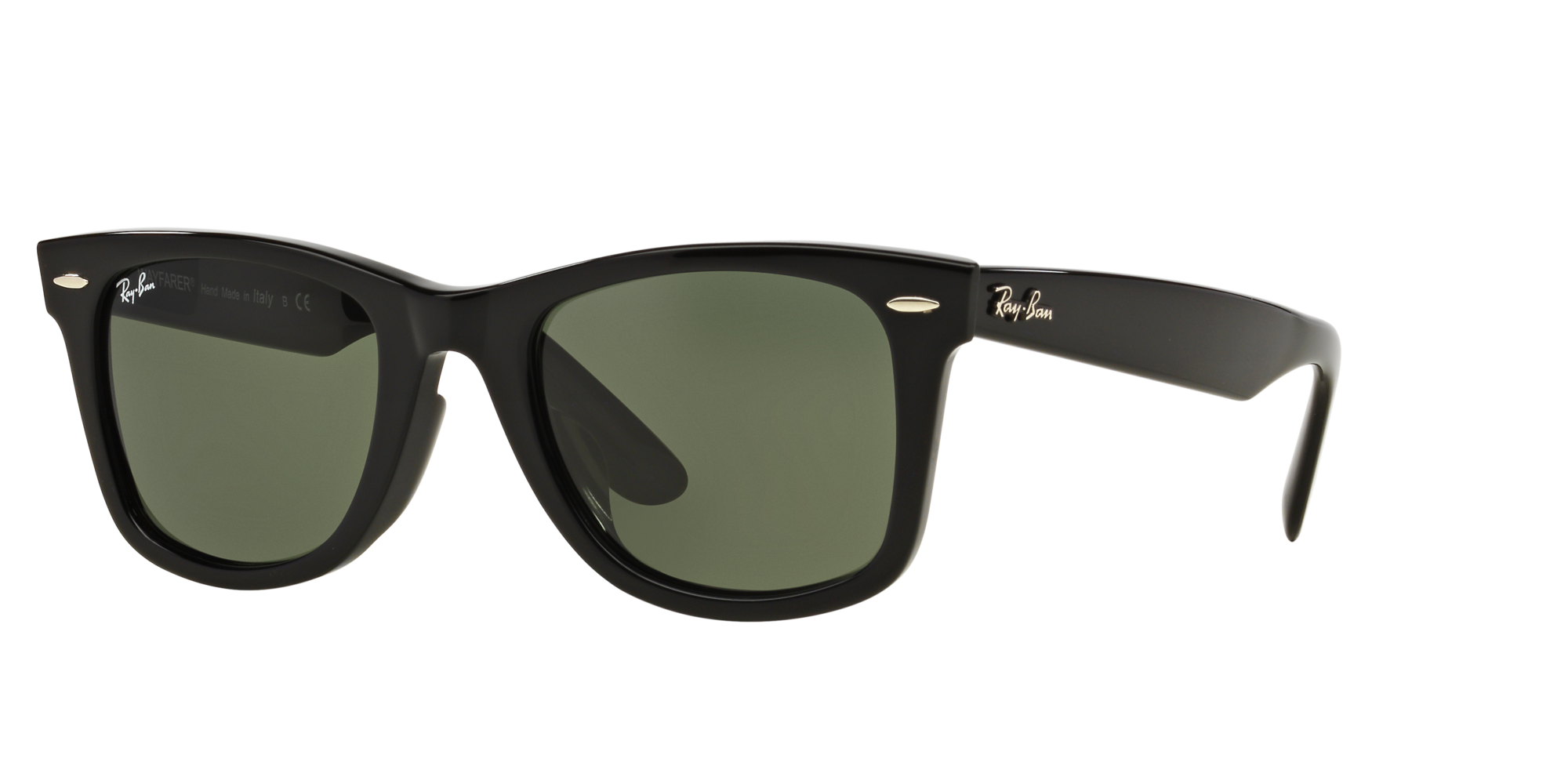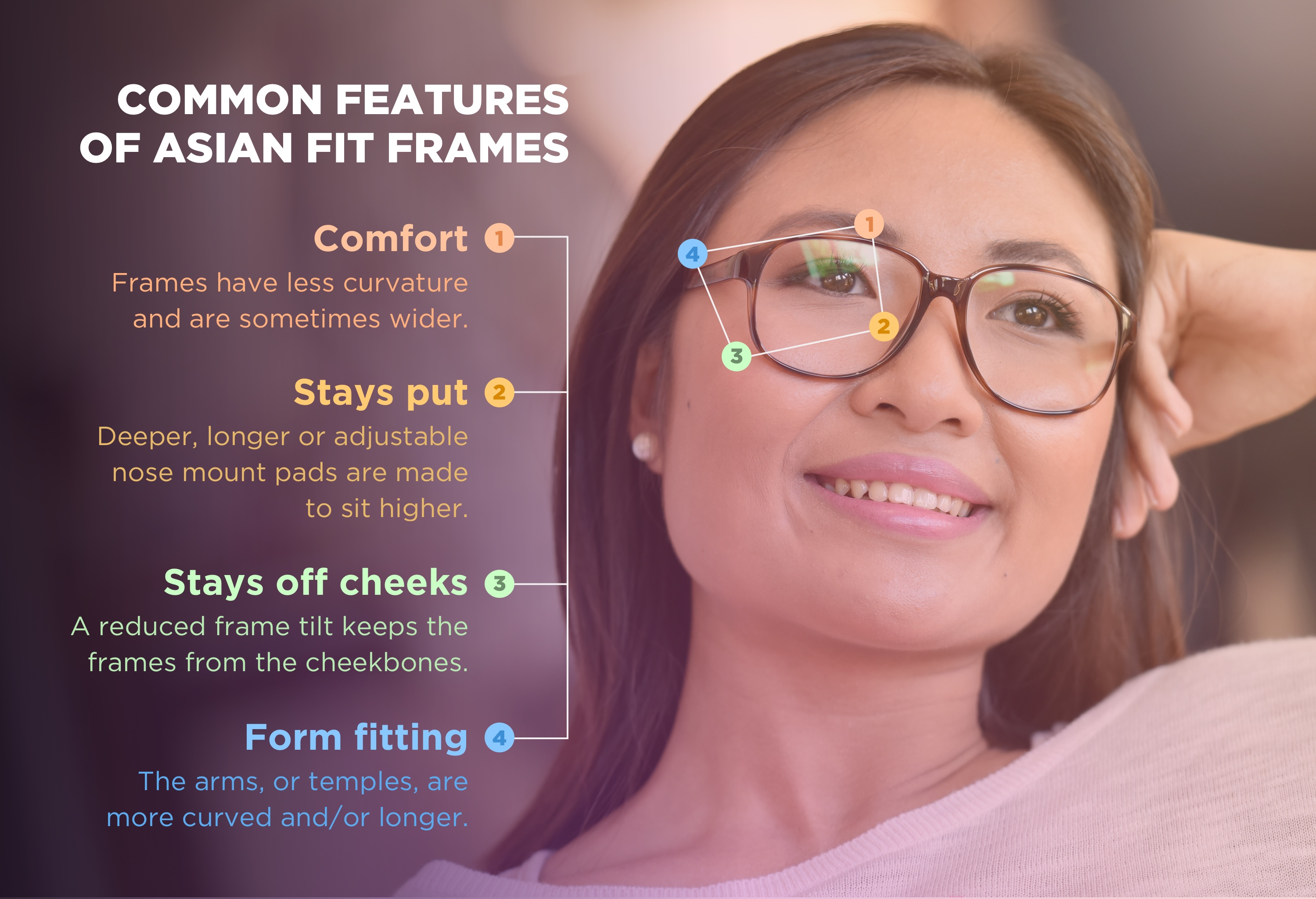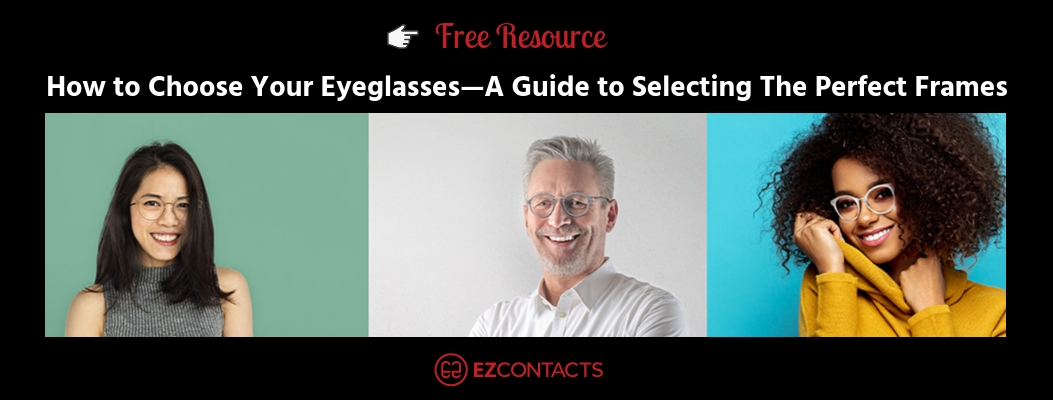![]()
You find yourself pushing your glasses back up your nose. It seems they slip down your face and rest on your cheeks. That’s not ideal. So, what’s the deal?
One size does not fit all.
Perhaps you’re of Asian descent—as is the majority of the world’s population. If not, you could simply have facial features like Asian people often do.
“Asian individuals tend to have more of a flatter face with the cheek bones very projected compared to the typical European.”
Mark Hubbe, assistant professor of anthropology at Ohio State University
Eyewear manufacturers have responded with a solution, which they most often call “Asian fit.” Other names have also surfaced to describe the solution:
- Alternative fit
- Low bridge fit
- Omni fit
What does “Asian fit” — or the terms above — mean?
It means the frames are designed slightly different. See, Asian people tend to have shallower nose bridges and higher cheeks. As such, eyewear designed to accommodate these facial features may include:
- Deeper nose bridges
- Wider frames
- Curved temples
- Flatter fronts/less base curve
Essentially, it all means the frames are made to sit higher on the bridge of a shallower nose.
“It could mean flattening the frame, narrowing the nose bridge, adding or enlarging nose pads, changing lens rake, or altering the curvature of the stems,” writes Kirsti Smouse on the Revant optics blog.
The differences are actually slight, in most cases, entirely unnoticeable, except to the wearer.
How do you order Asian fit frames?
At EZContacts, we try to make it easy. You can simply enter the term “Asian fit” in the search field when you begin your product hunt. As of today, the search produces more than 900 results from a long list of the authentic frames we sell.

With Asian fit frames, you’ll find the model numbers typically are appended with an “A” or “F.” Sometimes the identifier appears in parentheses, like the model number for the ever-popular Ray-Ban Wayfarer.

RAY-BAN RB2140F WAYFARER ASIAN FIT
As is the case with any of the products we carry, you can then filter your search by brands, price, frame shape and much more.
Additionally, you can specify lens width, bridge width and arm length.
How will your Asian fit frames differ?

As indicated in the image above, features of Asian fit frames could—and often do—include:
- Frames with less curvature; they may also be wider.
- Deeper, longer or adjustable nose mount pads.
- Reduced tilt.
- Longer or more curved arms (temples)
Perhaps you have more questions about how to choose frames that complement your face shape. This guide will be very helpful:


